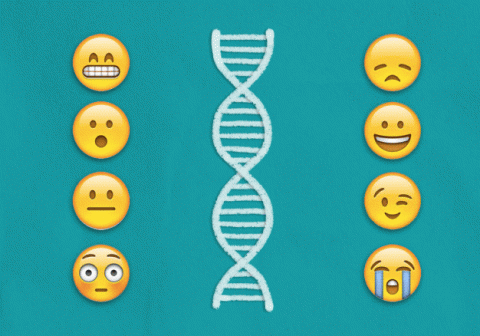This post was inspired by a performance I saw last night called ‘Highly Sensitive’ by Hannah Jane Walker.
Evolutionary psychologists tell us that everyone is born with a different amount of neuroticism. A person high in neuroticism has a propensity for feeling more of the uncomfortable emotions (and feeling them with greater intensity). Why should this be? Well imagine a tribe of stone age people absorbed in their daily life. A fierce animal or enemy could come along at any time and attack someone in that tribe – if it were not for those within the tribe on high alert pretty much all of the time. A person feeling anxious for 100% of the time so they are on call for that one time their alert is actually needed seems rather unfair on that individual. It’s not a lot of fun being wired up that way. People high in neuroticism are sensitive people. (The plus side of neuroticism is that it tends to make individuals try hard and do well in whatever they apply themselves to.)
Sadly though, our current western, capitalist society does not value sensitivity. The requirements to succeed in our current ‘system’ include a need to be tough, a need to not worry too much about what others’ think and to thrive in a competitive environment. I have been saying this for years: many of those in powerful positions are not likely to care too much about others, community, social care or indeed the state of the world. (This is a generalisation and I appreciate there are exceptions).
So what happens to children who are sensitive? Well with the ‘tough’ mantra being sung by pretty much everyone (including sensitive people – we’ve all been duped), sensitive children get metaphorically (and sometimes physically) bashed, beaten and knocked down over the years. A big part of what makes them who they are does not fit in with our yardstick of success and they are repeatedly made aware of this. All the things less sensitive children manage without a struggle (e.g. participating fully all the time with no need to withdraw) are ‘clocked’ by the sensitive children adding to their their growing feeling of failure.
I also think sensitive children learn to cover up their sensitivity. This is sad in itself as not being able to be authentic can be damaging but also the covering up methods can lead to narcissism, extreme withdrawal or insensitivity towards others – a sort of bite before you are bitten thing. For sensitivity to thrive, it needs nurture as it is a delicate thing of course.
And as Hannah Jane Walker concluded last night, the less sensitive, tough decision makers haven’t really got us to a great place have they (rhetorical mark) so it really might be time for society to evolve in a way that values sensitive people so that they can be in places where they are truly heard. Sensitive people certainly have the alarm bells but they can also have gentleness, the capacity to listen carefully and understand with genuine empathy and can genuinely care about your emotional well-being when they are truly comfortable and allowed to be themselves.
So my message in this post is mostly about being aware of our mass conditioning that leads us to believe in a narrow set of success criteria and acknowledging those are not easily accessible to all. A sensitive child has many qualities and it is a huge shame they are rarely allowed to flourish. Let sensitive children be sensitive. Praise it. And please don’t tell them to ‘man up’ as just look at where all this ‘manning up’ has got us!

